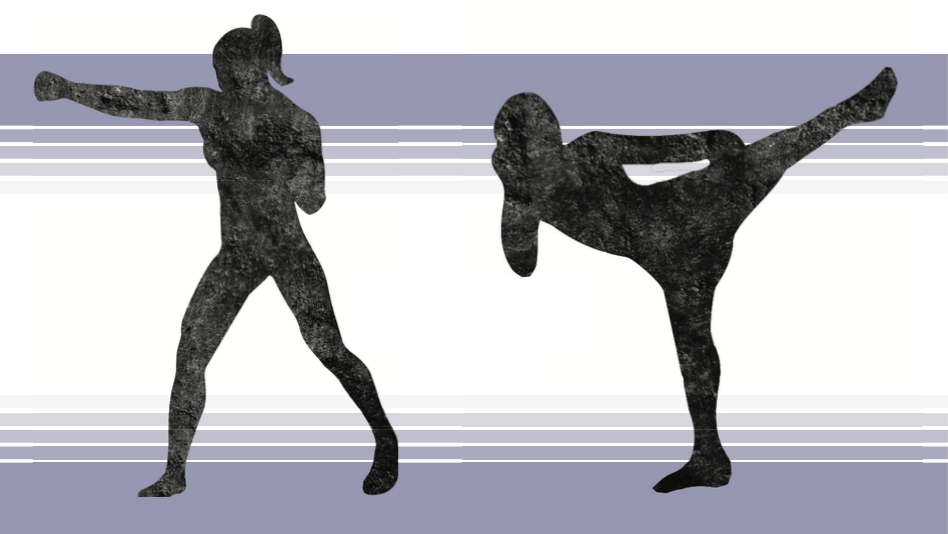“Rape is something like a pebble dropped into a pond,” Lawrence Nadeau, the founder of Rape Aggression Defense, explains. “Its impact, so visible at first, quickly diminishes as society forgets, leaving the victim alone with her pain. The forgotten pebble is yesterday’s rape, tomorrow’s statistic.”
Nadeau wants to shine a light on the topic of sexual assault through the R.A.D. program which is meant to empower women and help them feel prepared in a possibly dangerous situation.
In 1989, Nadeau founded R.A.D. This three day self-defense course for women is offered not only at LSU, but in all 50 states and in various countries.
According to the National Sexual Offense Research Center, one in five women will be sexually assaulted or raped while attending university. The Center also reports about 16 percent of these assaults will be committed while the victim is incapacitated.
At LSU, an average of seven rapes or sexual assaults were reported each year between 2012 and 2014, according to the LSU Police Department Crime Statistics.
“Rape is the most under-reported crime,” says Kathryn Saichuk, assistant director of wellness and health promotion at the LSU Student Health Center.
The reason for the discrepancy between reported sexual assault and actual rape statistics is hard to pinpoint. Few rapes are reported and even fewer make it to court, Saichuk said, which may discourage victims from coming forward. Some people believe the repercussions for reporting sexual assault would be worse than the rewards. For example, underage drinkers that are raped think they would get in trouble for drinking and may not want to report it.
“Victims are afraid that they will be made the bad person,” Saichuk said. “Those terrible comments that you hear people say, ‘what was she thinking wearing that or being out at night?’ I wouldn’t recommend that a female be walking by herself at night but, she’s not asking to be raped or for someone to abduct her. Nobody asks for that.”
The LSU Police Department and LSU Student Health Center come together to put on R.A.D. at the University.
“I was approached by a young lady on campus… I was giving her a ride from her car to her dorm and she asked if an area was safe,” LSUPD Lt. Jeff Lemoine and R.A.D. instructor explained. “And it had never dawned on me that the area was unsafe… it really hit home that women don’t feel safe in particular areas and that they worry about that kind of thing everyday.”
University alumna and four-time R.A.D. participant Mikaela Mettler and her grandmother Mychal Sneed make sure to attend every R.A.D. class they can.
“I come back because [R.A.D.] is a fun way to exercise and to refresh your skills,” Mettler explains. “It’s important for young women to know how to protect themselves and older women as well.”
R.A.D. teaches women self-defense and preparedness while building their confidence to face the danger they may meet in college and beyond. The program’s tactics are not combative, like martial arts. Instead, it focuses on how to avoid and escape harmful situations. R.A.D. is designed so a woman of any age, physical stature and ability can learn the skills to protect themselves.
Since the beginning of R.A.D., over 900,000 women have been trained in self-defense and preparedness, according to the R.A.D. systems website.
“I’ve seen people come into these classes the most timid people, not [wanting] to say too much… and leave the most confident people I’ve ever seen in my life,” says Blake Devillier, LSUPD K-9 Officer and second year R.A.D. instructor.
The goal of the program is for women to do want they want in life without being fearful of what may happen to them, Saichuk said. Taking R.A.D. may not guarantee your safety, but it will empower you to handle a dangerous situation wisely.
“As things happen in our society it seems that we are more and more in need of this kind of knowledge,” Saichuk says, who has been an advanced R.A.D. instructor for 16 years.“Knowledge is power.”
R.A.D. classes are offered at the University once or twice a semester and are available to people 13-years-old and up. All R.A.D. instructors are certified to teach basic defense for women.
To learn more about R.A.D., contact the LSU Student Health Center or visit rad-systems.com. Right now, classes are only offered to women, but men who are interested can contact Kathryn Saichuk at [email protected] to discuss options.
R.A.D. teaches basic protection techniques against sexual assault, aggression
November 22, 2016







